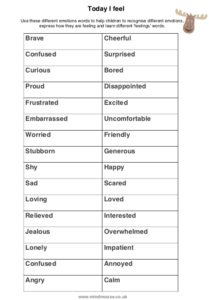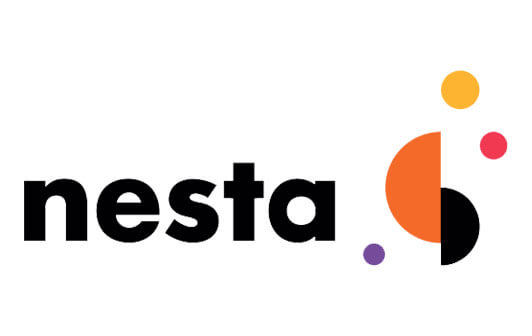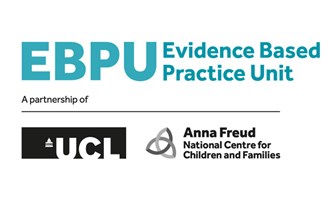Helping children to be name and talk about the emotions they feel is very helpful for their emotional intelligence and psychological health, both of which can improve life outcomes.
Being able to name and label different emotions is a very helpful emotional development skill. This simple sheet of emotion labels can be used in lots of ways to help children understand how they feel, learn different emotional vocabulary, and recognise how different emotions look.
You can cut them up, just pick from the sheet and ask children to draw emojis next to each one to get talking about feelings and emotions.
Click here to download the ‘Today I Feel…’ Printable








